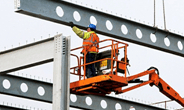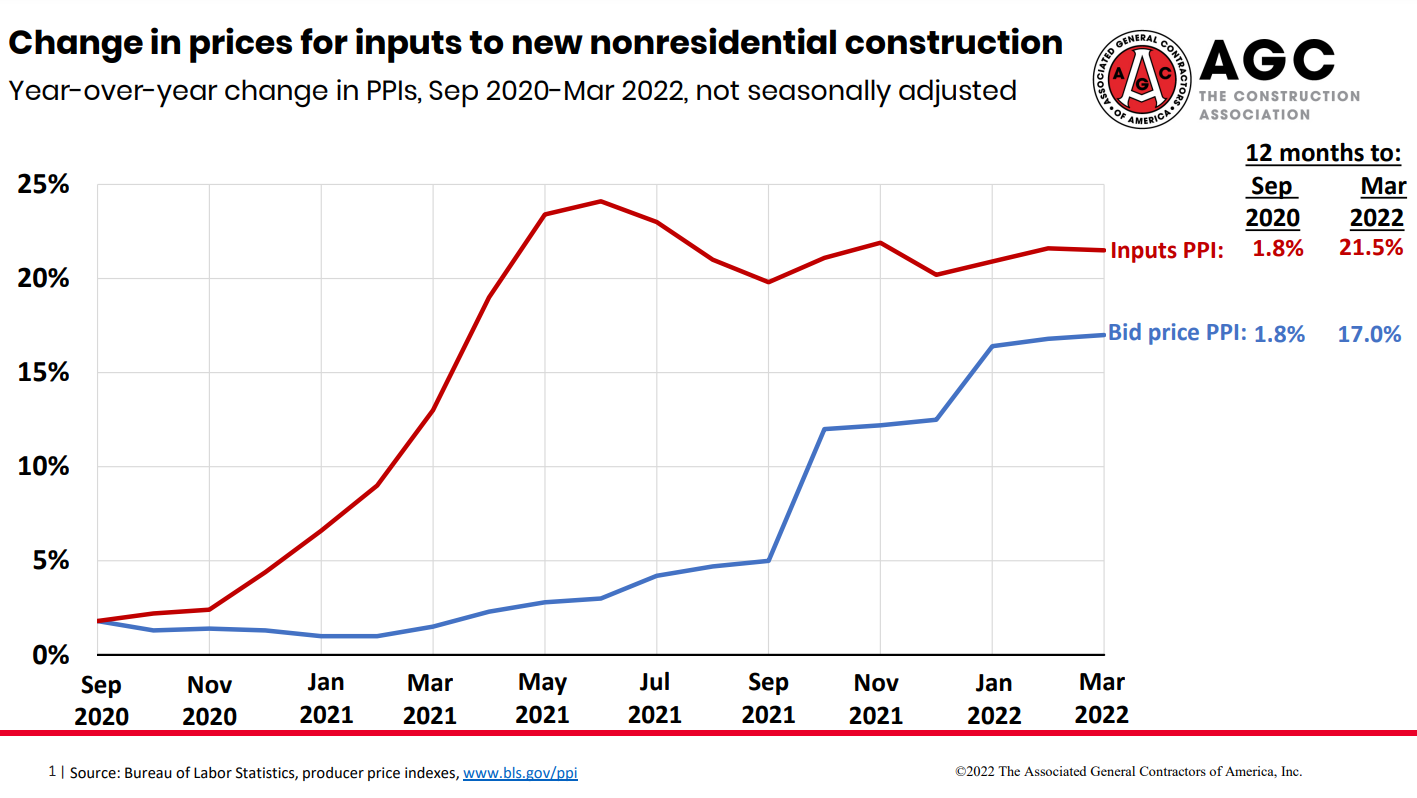Analysis

April 14, 2022
AGC: Sharply Rising Costs Continue to Hinder Nonresidential Construction
Written by David Schollaert
The prices contractors pay for construction materials and services – chiefly for new nonresidential construction – jumped by more than 21% in March versus the same year-ago period, reports the Associated General Contractors of America (AGC) in its latest analysis of government data.
The association has called for relief from tariffs, urging the Biden administration to ease major cost pressures resulting from remaining tariffs on aluminum, steel, and Canadian lumber.
“Construction firms have been burdened with cost increases of 20% per year or more since early 2021,” AGC chief economist Ken Simonson said. “Since contractors can seldom pass along increases on projects that are underway, these extreme price hikes threaten the viability of many firms. Unfortunately, the continuing war in Ukraine is likely to keep input costs elevated for many more months, if not longer.”
Citing the Bureau of Labor Statistics, AGC said the cost index outgrew the bid-price index in March, a disparity that has plagued contractors for the 18th-straight month, year-on-year.
The producer prices for inputs to new nonresidential construction – the prices charged by goods producers and service providers such as distributors and transportation firms – rose 2.7% month over month in March and 21.5% year on year. In contrast, the index for new nonresidential building construction – a measure of what contractors say they would charge to erect nonresidential buildings – rose 0.6% for the month and 17.0% from a year earlier.

Prices rose faster than the 17% increase in bid prices for a wide range of inputs in the cost index. The price index for diesel fuel leaped 63.8% over 12 months, while the index for aluminum mill shapes jumped 43.7%. The index for steel mill products climbed 42.9%, and the index for plastic construction products rose 35.2% over 12 months.
In addition, year-over-year increases exceeded 17% for a number of other indexes, including trucking freight (+24.5%), asphalt and tar roofing and siding products (+22.6%), lumber and plywood (+20.9%), gypsum products (+20.8%), architectural coatings (+20.6%), and insulation materials (+17.4%).
Tariffs as high as 25% on steel, 18% on Canadian lumber, and 10% on aluminum have worsened the extreme price gains for these inputs, the AGC said. They urged the Biden administration to remove the tariffs immediately to provide relief for employers grappling with rapidly rising materials costs.
The Trump administration imposed Section 232 tariffs of 25% on imported steel and 10% on imported aluminum in 2018. The steel and aluminum tariffs were lifted from Canada and Mexico in 2019. And the Biden administration has this year eased or agreed to ease tariffs on the European Union, Japan and the UK. But the national security duties remain in place on other key offshore steel suppliers such South Korea and Turkey.
“Given the impact inflation is already having on the economy, it makes no sense for the administration to continue to needlessly inflate the cost of key construction materials,” AGC CEO Stephen Sandherr said. “Removing these tariffs will take some of the price pressure off of employers grappling to control costs.”
By David Schollaert, David@SteelMarketUpdate.com






